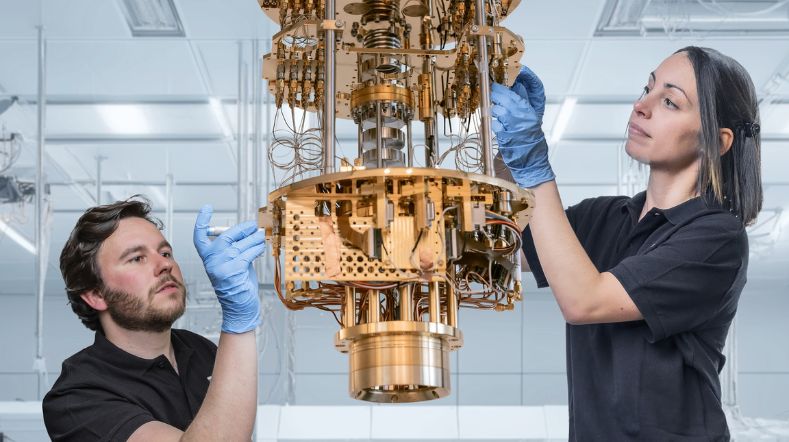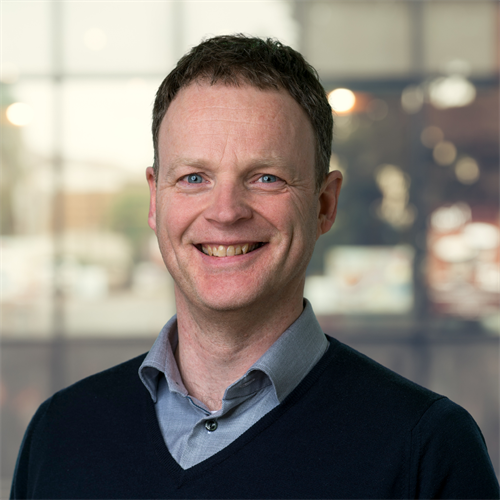
Pioneering on the edge of physics: quantum chips tested faster and faster
Garrelt Alberts was working at TNO when he discovered a crucial gap in the emerging quantum industry: testing quantum chips. Together with 4 colleagues from TNO and Delft University of Technology, he founded Orange Quantum Systems in 2020. It is A TNO spin-off dedicated to testing chips for tomorrow’s quantum computers. The company now employs 30 people and is growing rapidly. ‘Once the market matures, we want to be ready to start testing quantum chips on a large scale,’ says Alberts.
The chip industry currently runs on typical semiconductors. But quantum chips, with their superior computing power, will play an increasingly large role in the future. TNO is spearheading this development not only through R&D, but also by bringing the technology to market through spin-offs like Orange Quantum Systems. The end goal is to make quantum-chip testing reliable and scalable.
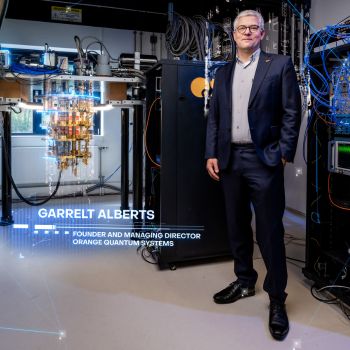
‘We think testing capacity will become the defining factor for quantum chips.’
From frustration to innovation
In 2017, Alberts was working as a programme manager at QuTech, a collaboration between Delft University of Technology and TNO. ‘While building demonstrators for quantum communications and computing, we constantly had chips coming in that did not work. That was really frustrating,’ he says. ‘So, we asked ourselves: why do these chips keep failing? Should they not be tested? That proved to be a major bottleneck in this new industry.’ Thus, the idea for the company was born. ‘Making qubits is not that difficult. But you want to know whether they will actually work. One faulty qubit can render the entire processor unusable due to disrupted entanglement.’
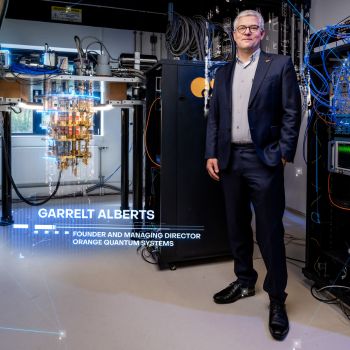
‘If one qubit fails, the whole processor loses its computing power.’
Testing at the cutting edge
Testing qubits is quite complex. They need to operate in a quantum processor, at milli-Kelvin temperatures that are colder than in space. ‘We have to keep all external influences locked out, from radio waves to sound,’ Alberts explains. ‘An ordinary chip can be tested with a current. With qubits, this is much more complicated.’ Only 5 years ago, it took 6 months to test 3 qubits, but Orange Quantum Systems has since automated that process. ‘We can now test a few qubits per hour. The goal is to reduce that down to seconds.’
Chiplets as accelerators
The next step is chiplet testing: testing smaller building blocks before they are assembled into a large chip. ‘That would speed things up even more, but we need to be sure that the test results are representative of how they behave in an integrated chip.’
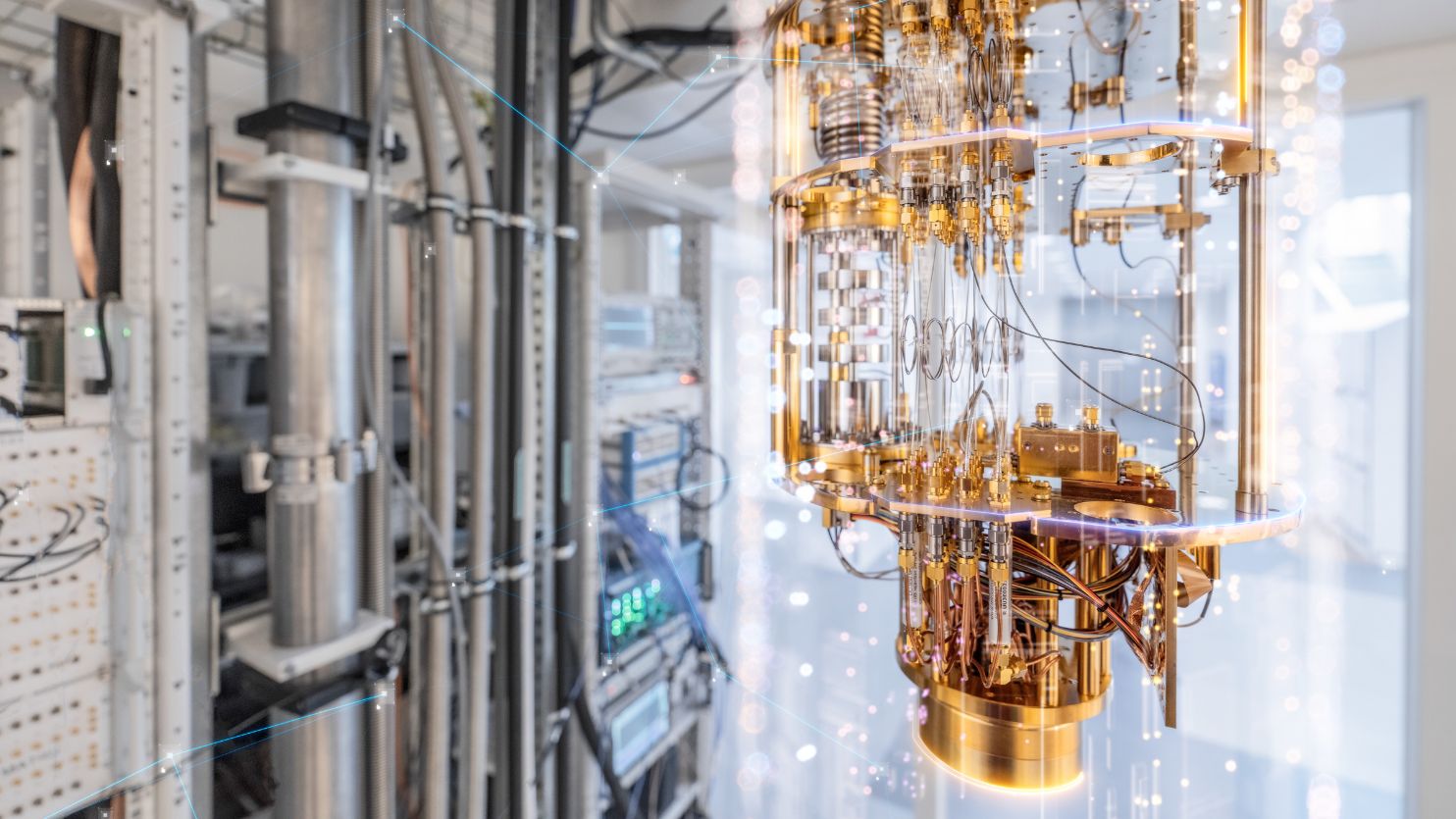
Working on the next generation together
The first product – the OrangeQS MAX – has already been delivered to a customer: IQM Quantum Computers. ‘That means we’re now working on the next generation,’ says Alberts. ‘We are once again looking to work closely together with universities and institutes such as imec and TNO.’ Alberts expects the computing power of quantum chips will double every 2 years, according to a quantum version of Moore's Law. ‘We have to keep innovating, and that calls for teamwork. There are 30 of us putting our heart and soul into what we do.’
Technology with societal value
For Alberts, the significance of quantum technology to society is a major personal motivator. ‘That enormous computing power could be harnessed to produce better medicine, energy solutions, and AI. The fact that we can play a part in that through the next generation of chips is a powerful incentive.’
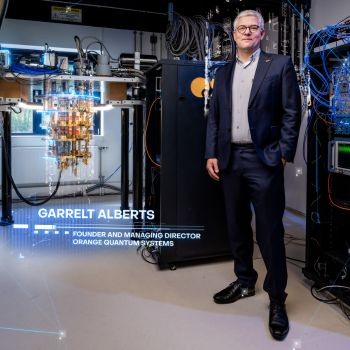
‘With start-ups, it’s often a risk whether their technology will work. But for us, TNO had already proven that our technology does.’
The Netherlands as a quantum hub
Orange Quantum Systems feels lucky to benefit from the quantum ecosystem in Delft. ‘We are system builders and use components from the local value chain. Delft is the quantum heart of the Netherlands. And we have access to a strong network of suppliers in the chip industry.’
Quantumtechnology
Curious about TNO's impact on quantum technology? Find out more via the link below.
Get inspired
TNO and Quobly join forces to advance industrial-scale silicon quantum technology
Pioneering with a purpose: The Netherlands at the forefront of quantum innovation


How TNO’s Ines Corveira Rodrigues shapes tomorrow's quantum world


Art and quantum: student team renders superposition tangible with TNO


TNO expands quantum information technology testing capabilities to support startups
